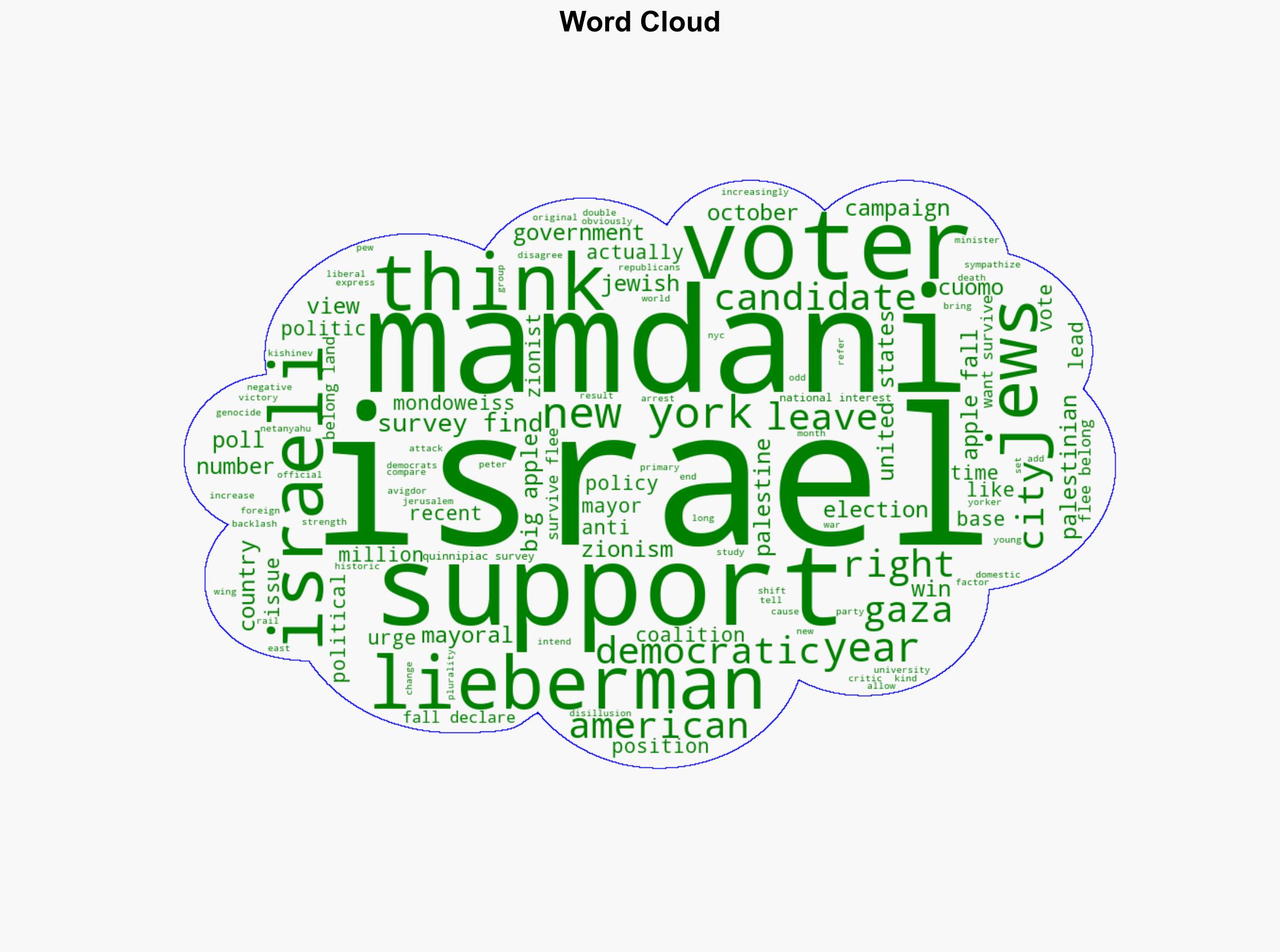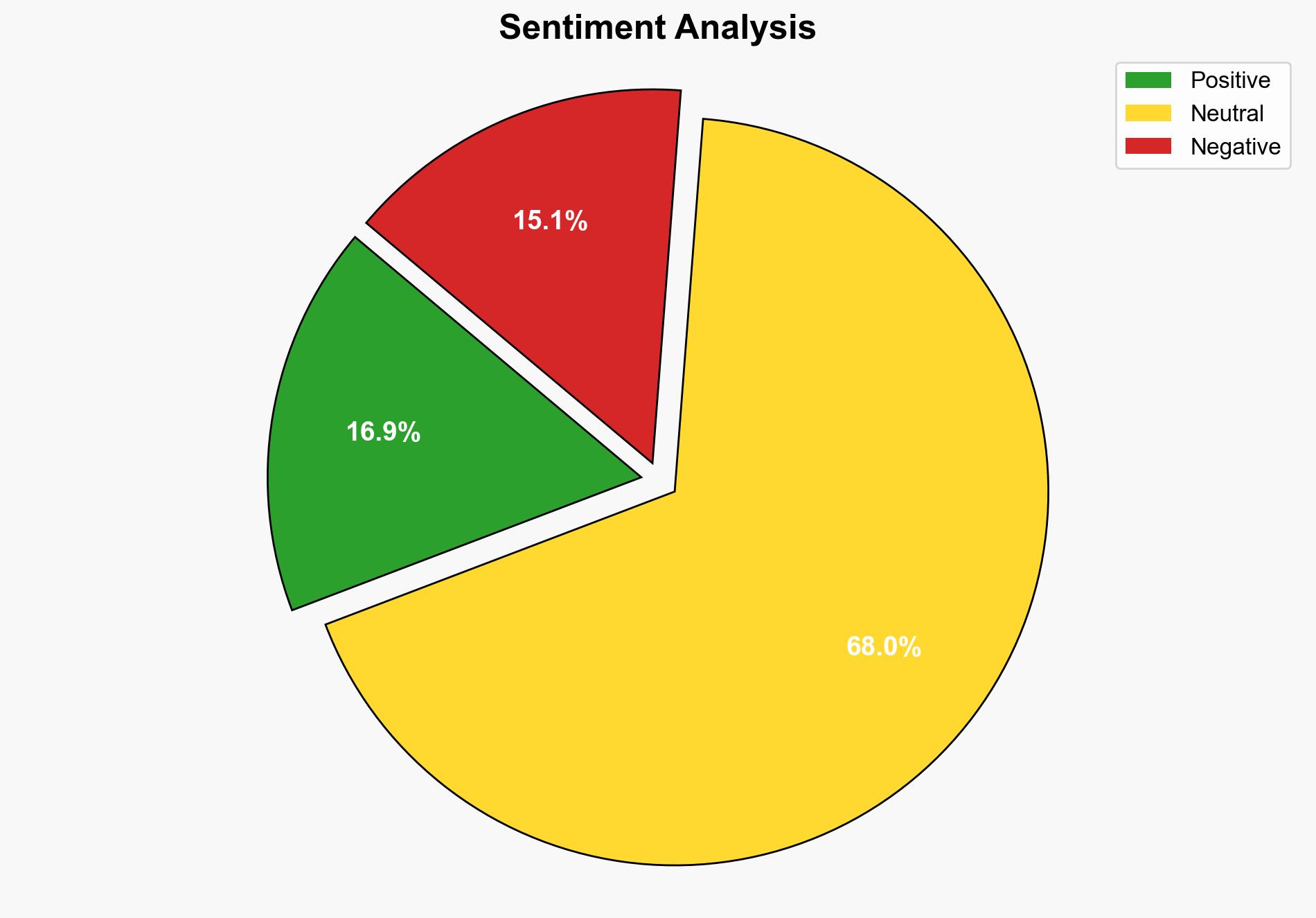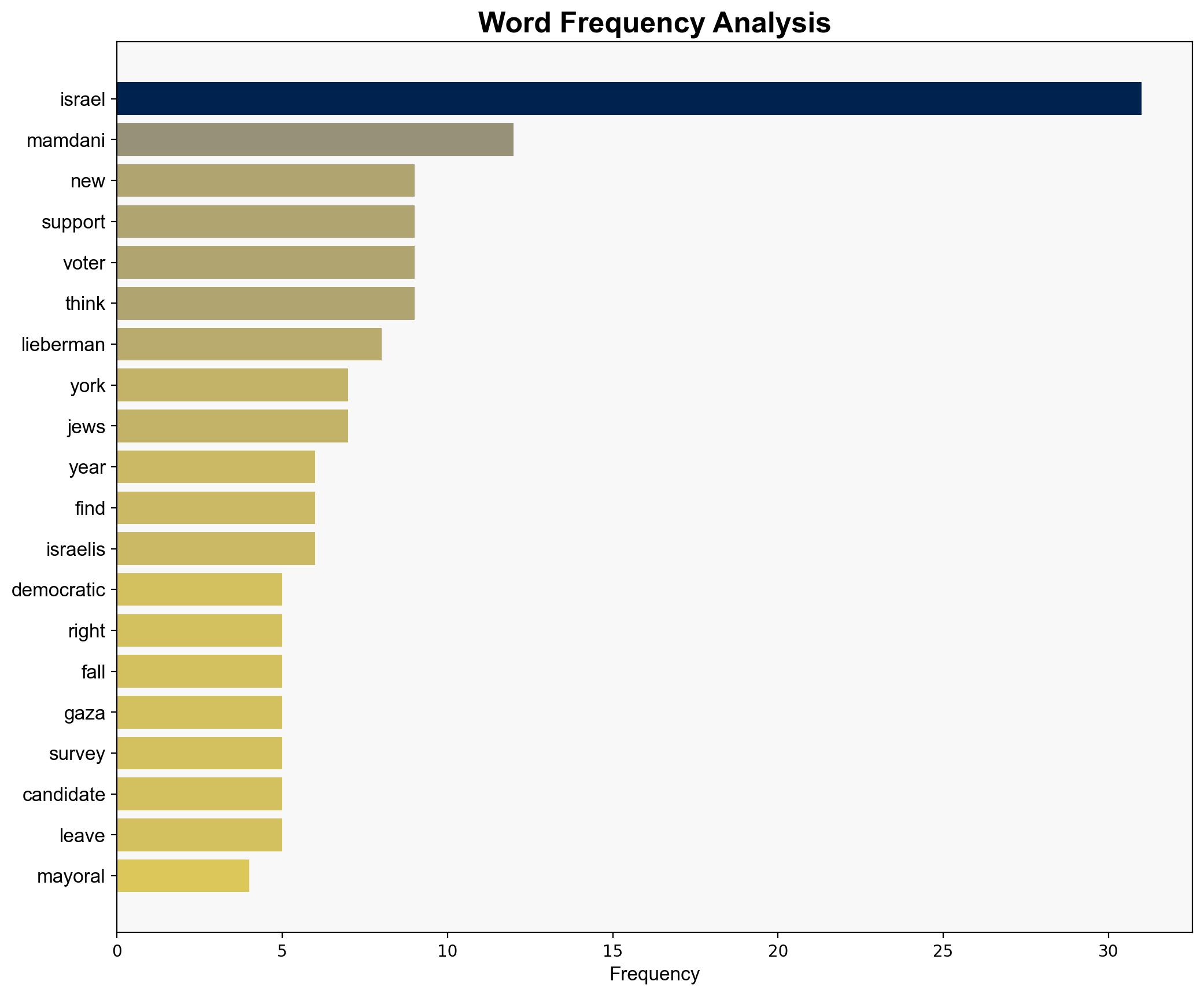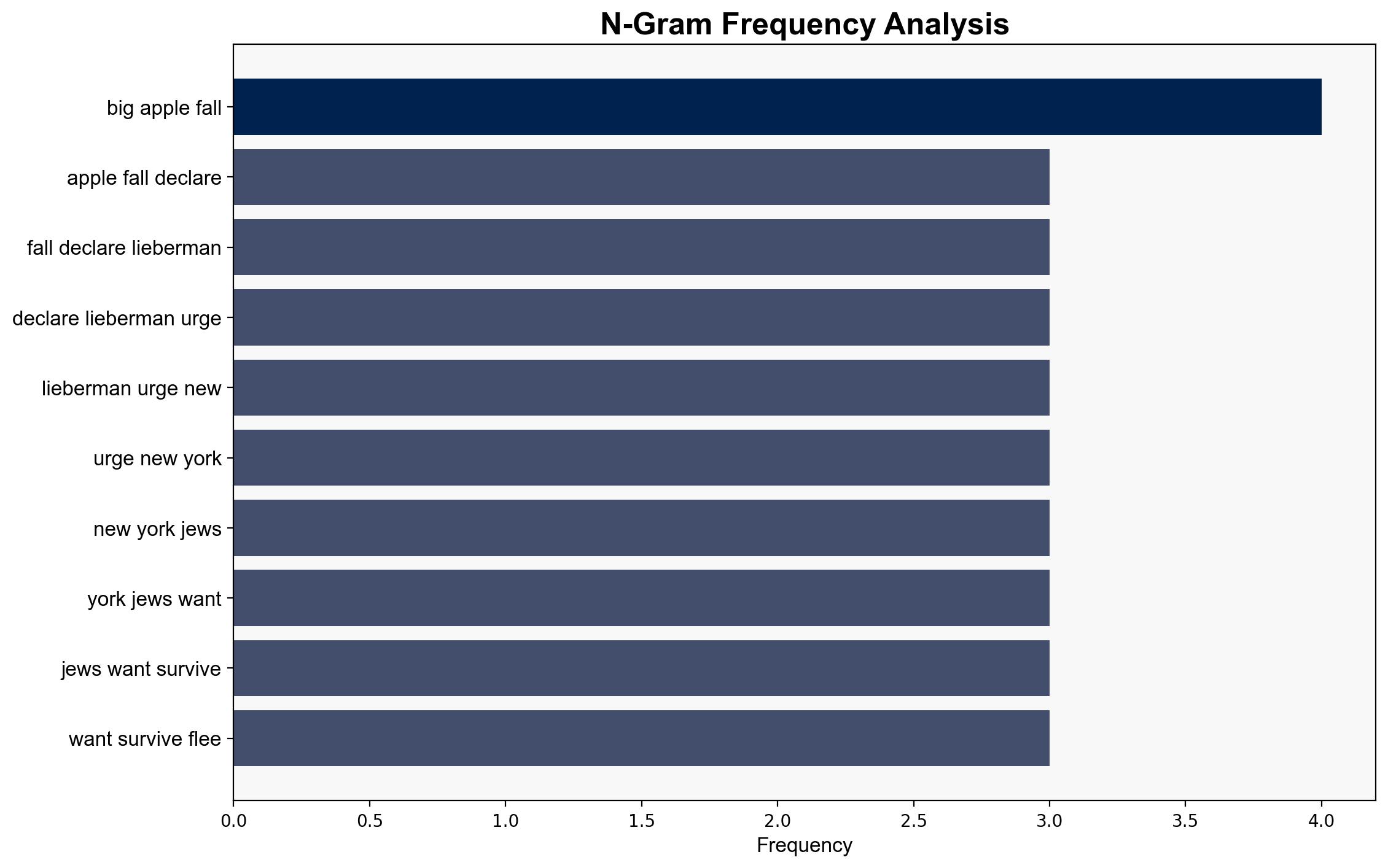Zohran Mamdanis victory is a loss for Zionism – Mondoweiss
Published on: 2025-11-05
Intelligence Report: Zohran Mamdanis victory is a loss for Zionism – Mondoweiss
1. BLUF (Bottom Line Up Front)
Zohran Mamdani’s victory in New York City is interpreted as a symbolic setback for Zionist influence in U.S. politics, reflecting a potential shift in public sentiment towards Israel. The most supported hypothesis suggests this election outcome signals a broader change in political attitudes, particularly among younger and Democratic voters. Confidence level: Moderate. Recommended action: Monitor shifts in U.S. public opinion and political discourse regarding Israel to anticipate future policy changes.
2. Competing Hypotheses
1. **Hypothesis A**: Mamdani’s victory represents a significant shift in U.S. political attitudes towards Israel, indicating growing support for Palestinian causes and a decline in Zionist influence.
– **Supporting Evidence**: Surveys indicate a growing divide among Democratic voters regarding support for Israel. Mamdani’s campaign capitalized on this sentiment, suggesting a broader trend.
2. **Hypothesis B**: Mamdani’s victory is an isolated incident, not indicative of a broader trend. His success is primarily due to local issues and his domestic agenda rather than foreign policy stances.
– **Supporting Evidence**: Exit polls show that Mamdani’s position on Israel was not a major factor in voting decisions. His domestic policies were likely more influential.
Using ACH 2.0, Hypothesis A is better supported due to the consistent survey data indicating a shift in Democratic voter attitudes and the symbolic nature of Mamdani’s victory in a major city like New York.
3. Key Assumptions and Red Flags
– **Assumptions**: Hypothesis A assumes that survey data accurately reflects voter sentiment and that Mamdani’s victory is a direct result of these attitudes.
– **Red Flags**: Potential overemphasis on foreign policy issues in the analysis of a local election. The role of domestic issues may be underestimated.
– **Blind Spots**: Lack of detailed voter demographic data to confirm the influence of foreign policy on election outcomes.
4. Implications and Strategic Risks
– **Geopolitical Risks**: A shift in U.S. public opinion could lead to changes in foreign policy, affecting U.S.-Israel relations and Middle East stability.
– **Domestic Political Risks**: Increased polarization within U.S. political parties regarding foreign policy could lead to internal conflicts and policy gridlock.
– **Economic Risks**: Potential impact on U.S. businesses with interests in Israel if public sentiment influences policy changes.
5. Recommendations and Outlook
- Monitor public opinion trends and political discourse related to Israel to anticipate policy shifts.
- Engage with diverse voter demographics to understand the underlying factors influencing political attitudes.
- Scenario Projections:
- Best Case: Increased dialogue leads to balanced U.S. foreign policy reflecting diverse viewpoints.
- Worst Case: Escalating polarization results in significant diplomatic tensions and domestic unrest.
- Most Likely: Gradual policy adjustments reflecting evolving public sentiment without drastic shifts.
6. Key Individuals and Entities
– Zohran Mamdani
– Avigdor Lieberman
– Benjamin Netanyahu
– Kelley Vlahos
7. Thematic Tags
national security threats, geopolitical shifts, U.S.-Israel relations, voter sentiment analysis




